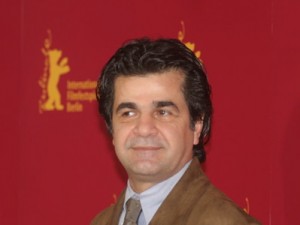 BERLIN — A Chilean feel-good movie about ageing, a picture made in secret by Iranian dissident director Jafar Panahi and a drama about Romania's new rich were the odds-on favourites for prizes Saturday at the Berlin film festival.
BERLIN — A Chilean feel-good movie about ageing, a picture made in secret by Iranian dissident director Jafar Panahi and a drama about Romania's new rich were the odds-on favourites for prizes Saturday at the Berlin film festival.
In what critics called a fair-to-middling competition at the Berlinale, now in its 63rd year, women of a certain age were the breakout stars, with views from around the world of how middle age can be just the time for a fresh start.
"Directors seem to have discovered the value of maturity and been anxious to explore the female face and psyche as they age, gracefully or otherwise," the trade magazine Hollywood Reporter wrote ahead of the awarding of the Golden Bear top prize by the jury president, Chinese director Wong Kar Wai.
Audiences swooned over Chile's "Gloria" starring Paulina Garcia, until now known mainly for television roles, as a divorcee pushing 60 who is determined to seek happiness despite the knocks life has to offer.
"Gloria is like Rocky: she takes a hit, picks herself up and gets back out there," said director Sebastian Lelio, 38, who took inspiration from his mother's friends, a generation of survivors of the country's brutal military dictatorship.
The picture topped a critics' poll by British film magazine Screen taken after 14 of the 19 competition films had been shown.
Another fierce performance, this time with a darker tinge, came in the Romanian drama "Child's Pose" by Calin Peter Netzer, about a wealthy and controlling mother who fights to get her son acquitted after he kills a poor teenager with his car.
Luminita Gheorghiu dazzled movie-goers in the role and was hotly tipped next to Garcia for a Silver Bear prize as best actress.
Panahi appears on screen in his haunting feature "Closed Curtain", for which he flaunted a film-making ban imposed by the Iranian authorities to show the crushing effect state oppression is having on his life and work.
The picture was the front-runner in a poll of German critics published by Berlin's daily Tagesspiegel newspaper, which called the picture "harrowing" and "courageous".
In a strong year for eastern European entries, Oscar-winning Bosnian director Danis Tanovic drew applause for "An Episode in the Life of an Iron Picker" which told the true story of a desperately poor Roma couple denied life-saving medical coverage.
Tanovic said his rage over the scandal led him to seek out the protagonists, who play themselves in the ultra low-budget docu-drama.
Other crowd-pleasers included "On My Way", an upbeat road movie with Catherine Deneuve, Juliette Binoche's turn in "Camille Claudel 1915" as Rodin's ex-lover whose family confined her to an asylum, and what Steven Soderbergh called his last cinematic venture, the thriller "Side Effects".
Quirky US buddy movie "Prince Avalanche", bullying drama "Harmony Lessons" -- the first Kazakh picture ever in competition in Berlin -- and Austrian bad boy director Ulrich Seidl's "Paradise: Hope" set at a teen diet camp also found fans.
Typical of the Berlinale, the first major European film festival of the year and a champion of politically charged movies, many pictures sharply divided critics.
"The Necessary Death of Charlie Countryman" starring Shia LaBeouf in a romantic thriller set in Bucharest had many reviewers howling but picked up a few supporters.
The hotly anticipated woman's Western "Gold" featuring German star Nina Hoss had a hometown advantage but many found the two-hour Yukon trek stultifying.
And Canada's "Vic+Flo Saw A Bear", which the New York Times highlighted as "a determinedly odd mishmash of lesbian romance, melodrama and thriller" in a positive review, left director Denis Cote explaining his intentions to a baffled press pack.
The Berlinale, which wraps up Sunday with screenings of the most popular among its more than 400 films, last year awarded the Golden Bear to Italian veterans Paolo and Vittorio Taviani for the docu-drama "Caesar Must Die" about prison inmates staging Shakespeare.
By AFP
The Iran Project is not responsible for the content of quoted articles.

 QR code
QR code